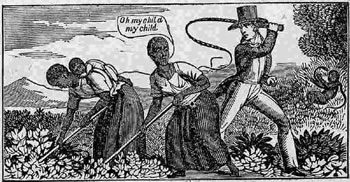 Change that comes too quickly can do more harm than good. Ask the Russians of 1917. Sadly, this general truth can be used by bad men to justify no change. Washington knew slavery must go, but he chased his runaways and lacked the moral courage to free his slaves in his lifetime. In an otherwise great man, this is a sickening sin.
Change that comes too quickly can do more harm than good. Ask the Russians of 1917. Sadly, this general truth can be used by bad men to justify no change. Washington knew slavery must go, but he chased his runaways and lacked the moral courage to free his slaves in his lifetime. In an otherwise great man, this is a sickening sin.
Why are we so hard on Southern American Christians and their sin of race based slavery? Over time, the Christian community mostly had done the hard work of ending slavery. Serfdom still existed, but it was on its way out. The Tsar freed the serfs before Lincoln freed the slaves and serfs had more rights than American slaves.
Southern Christians knew better and their slowness in doing the right thing was a matter of economics and moral compromise. The rotten nature of the Confederate States of America, home to this peculiarly vile institution, is shown when autocratic Russia had more virtue. Pushkin had an easier time of it than Frederick Douglass . . . though in 2017, President Trump has given Frederick Doug Douglass a shout out, but the truth is, that his life as a slave was an inditement of much of the American church.
We had slaves not because we were Christian, the global church had learned this lesson long ago, but because we were American. This is a twist on American exceptionalism: we were exceptionally morally backwards on slavery.
Doubt it?
Read John Chrysostom (AD 349-407):
“Ah! How mighty a Master does he hint at 159 here! How startling the suggestion! It is this. “With what measure thou metest, it shall be measured unto thee again” (Matt. vii. 2.); lest thou hear the sentence, “Thou wicked servant. I forgave thee all that debt.” (Matt. xviii. 32.)
“And there is no respect of persons,” he saith, “with Him.”
Think not, he would say, that what is done towards a servant, He will therefore forgive, because done to a servant. Heathen laws indeed ads being the laws of men, recognize a difference between these kinds of offenses. But the law of the common Lord and Master of all, as doing good to all alike, and dispensing the same rights to all, knows no such difference.
But should any one ask, whence is slavery, and why it has found entrance into human life, (and many I know are both glad to ask such questions, and desirous to be informed of them,) I will tell you. Slavery is the fruit of covetousness, of degradation, of savagery; since Noah, we know, had no servant, nor had Abel, nor Seth, no, nor they who came after them. The thing was the fruit of sin, of rebellion against parents. Let children hearken to this, that whenever they are undutiful to their parents, they deserve to be servants. Such a child strips himself of his nobility of birth; for he who rebels against his father is no longer a son; and if he who rebels against his father is not a son, how shall he be a son who rebels against our true Father? He has departed from his nobility of birth, he has done outrage to nature. Then come also wars, and battles, and take their prisoners.459 Well, but Abraham, you will say, had servants. Yes, but he used them not as servants.”
Homily 22. http://www.ccel.org/ccel/schaff/npnf113.iii.iv.xxiii.html
Read this carefully. Imperial Rome might have justified slavery, but the minute Christianity became dominant, the leading prelate of the Empire, the man who preached in the Imperial City to the Emperor said that slavery was the “fruit of sin.” Every Eastern Church uses the service based on this man’s work. There was no turning back: all people were created equal and no laws could long keep them unequal.
Abraham Lincoln knew what George Whitfield did not: slavery was an abomination centuries after Chrysostom.
Slavery was, is, and always will be deeply incompatible with Christendom. Of course, abolition had to proceed slowly. Many slaves had better social status (in the system of economic slavery) than many freemen. This did not justify slavery, but it meant that emancipation had to be done with care. If it went too slowly, still it happened, and no part of the world where Christianity is in the majority knows slavery today.
It is the burning shame of the American South that some justified this treatment and blasphemous that some still soften the evil.
——————
I am thankful to Father Symeon Kees for this passage and a discussion at The Saint Constantine School that led to this post.











